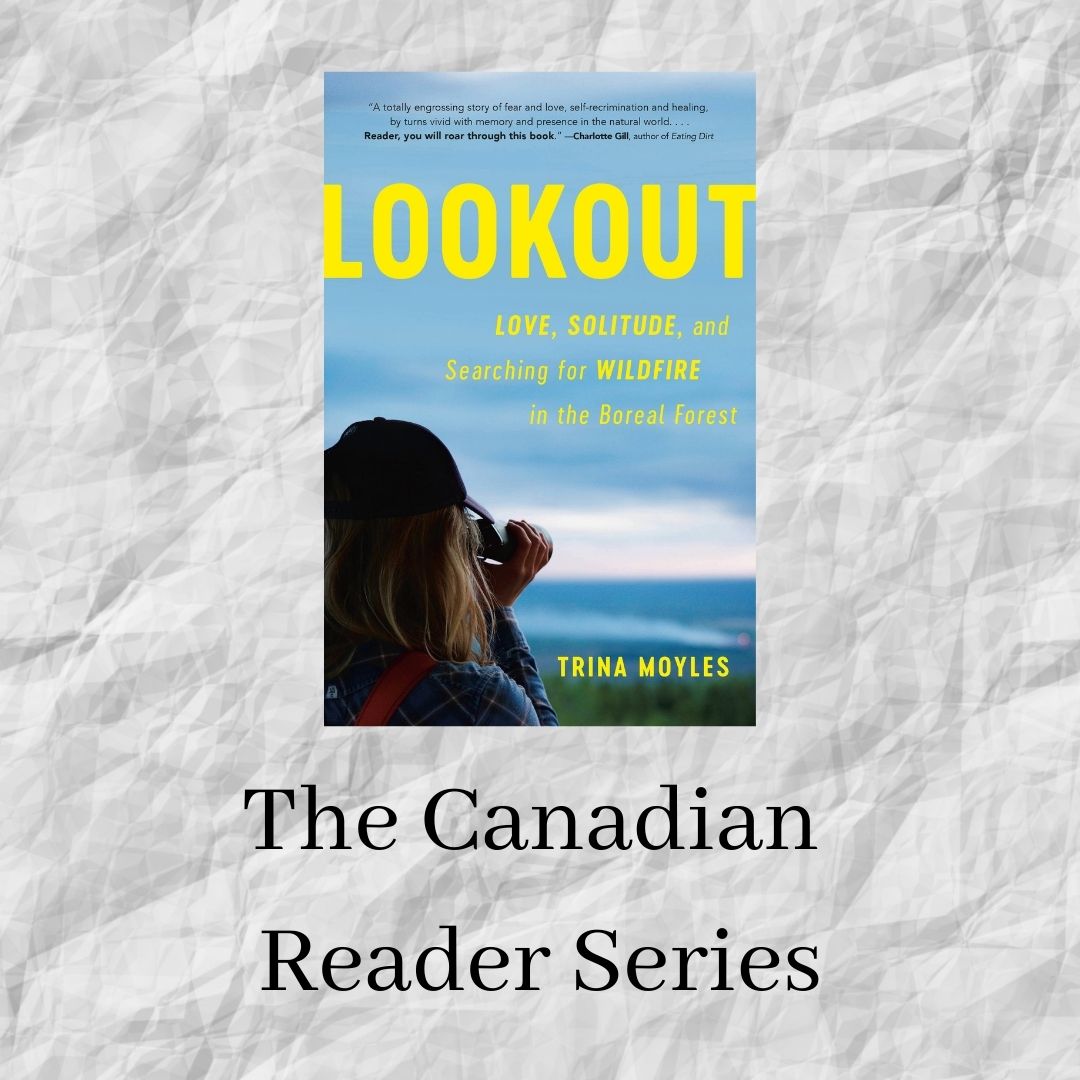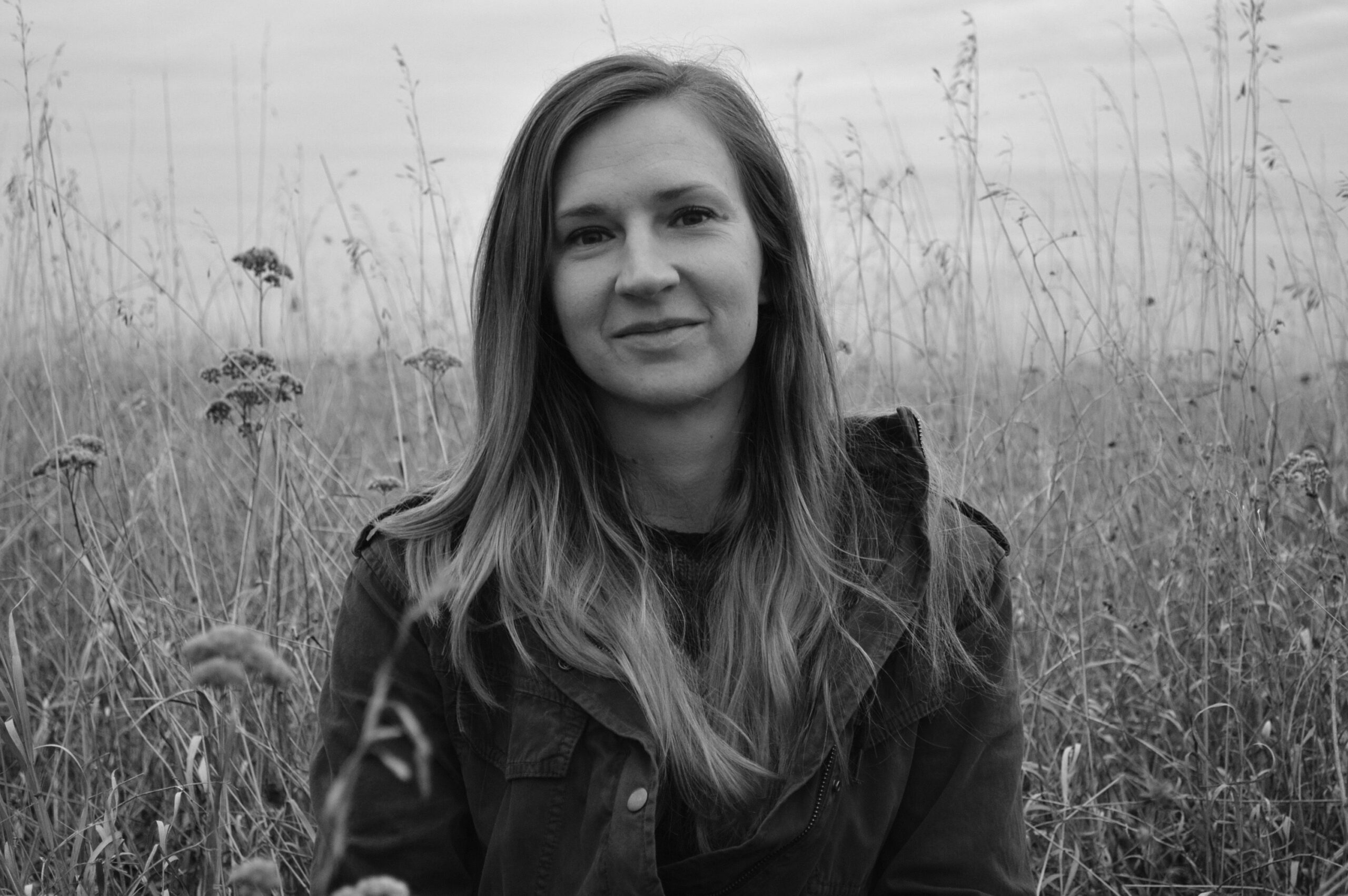Excerpt from Lookout by Trina Moyles
Lookout: Love, Solitude and Searching for Wildfire in the Boreal Forest

Trina Moyles is no stranger to solitude. The author of the new memoir Lookout: Love, Solitude and Searching for Wildfire in the Boreal Forest has spent several summers as a lone eye in the sky atop a fire lookout in northern Canada. What sounds like an uneventful task is one that protects our forests and remote communities before they even know there is danger. In her book, she documents the highs, lows, excitement, and boredom of the at times thankless profession that is smoke-spotting. This excerpt details the thrill of spotting her first smoke and includes a cameo from a dearly departed Canadian writer.
This is the first instalment in a new series from NUVO that spotlights excerpts from new and exciting books. Stay tuned.
———
By eleven o’clock in the morning, the molten sun poured out of the sky and the humidity soared. The cupola felt like a dry sauna, so I cracked open all the windows, but the limp wind barely moved the anemometer. I would’ve described the wind as calm in a weather report, but that wasn’t quite accurate. This kind of weather was a recipe for disaster, for wildfire. My neighbour, a seasoned lookout to the east, sent me a text: “Trina, stay vigilant today. There will be fire before the day is over.”
I looked southwest and spied the parade, a procession of cumulus approaching from about forty kilometres away. I wondered how long it would take to wake up these sleeping clouds. Another hour? Two hours? I was grateful when I heard the sound of the helicopter approaching.
“Something has got to give today,” I said to the crew, speeding through my weather calculations before rushing back up the ladder. No banter today. I was all business, ready to catch my first smoke. I climbed up into the cupola just in time to catch the first strike from a cell to my southwest. Lightning shot out of the bruised belly of a huge cumulonimbus cloud.
“First strike!” I yelled down to the guys, before radioing it in.
“Wahoo!” Eric cheered from down below. One of the crew members sat up, suddenly awake, and laced up his boots.
They began to gather their belongings, anticipating a dispatch, but the radios stayed quiet. I waited another five, ten minutes before spotting a second strike. Nothing but moisture rose up out of the forest. My eye lingered on a few of the spooks. Was it a smoke? Yes? No. Definitely not a smoke. I put the radio mic down.
“See anything?!” Liam, the pilot, hollered up. He paced back and forth like a caged tiger, eager to be up in the air, flying, and bucketing on his first wildfire.
“Not yet! I’ll let you know!”
I was revelling in the camaraderie of the crew, their reliance on my best judgment. I was the only one who could see the forest and cry smoke, and it made me feel, even for a brief second, a part of their team. An honorary member. Tower Girl and her yellow posse.
The wall of black pushed northeast, attracting more clouds and gathering strength. My neighbour to the east called in a dry strike from the same cell. Aha, there. I spied a white filament, ahead of the storm, spearing the coniferous tops. The storm was pushing directly overtop of his tower. “I’ve got hail,” he said over the radio. “Alpha one-zero,” which described pea-sized hail. Alpha one-one was for grape-sized hail, and alpha one-two described walnut-sized ice chunks.
My phone rang and I jumped at the sound.
“Hello?”
“Hi, Trina, this is the duty officer calling,” said a male voice. “Can you tell Eric to get the guys off the ground and head out on a patrol?”
I shouted down to the crew and waved goodbye as they trotted back towards the helicopter, loaded their gear, and flew off to patrol the areas of forest to my northeast for wildfires. I worried they’d catch a smoke from the air—“steal a smoke,” as some lookouts were prone to saying. No lookout wanted to miss a smoke. And who could blame us? We spent hours, days, weeks, months, and, for some, multiple seasons scanning the horizon for wildfires. Aircraft patrols often had the advantage over lookouts, flying over low-lying smokes that would be difficult to see from the fire tower. No one liked to be “scooped” by patrols, even if we were all on the same team.
“Don’t steal my glory, guys,” I said to the empty space they left behind. The red helicopter shrank into a fleck of red paint against a wall of black. I continued to watch, but nothing happened—no strikes, no smokes, no fires.
Maybe not today, I thought glumly.
I poured myself a cup of coffee and turned on a podcast, CBC’s Vinyl Café, then sat down in the swivel office chair and kicked my boots up onto the window ledge. I leaned back as host Stuart McLean’s familiar voice filled the cupola.
The current episode was about Dave’s daughter, Stephanie, and her tree-planting adventures in northern Ontario. It was one of my favourites.
“Stephanie landed a job as a tree planter this summer. She thought it was going to be a ton of fun,” Stuart McLean said wryly. He paused and the audience laughed. “She heard you could make a load of money in no time flat, planting trees. So she signed up and found herself on an old school bus, heading north out of Thunder Bay, in the early days of May—full of hope.”
McLean described Stephanie’s first day on the job. Her boss dropped her off at a scraggly patch of alder-choked land with a box of 2,500 white pine seedlings. “Make it happen, man,” the boss said to Stephanie. By the end of the day she’d only planted 500 trees. Impossible, she thought, 2,500 trees would be impossible. Every day was a blur, the same blur—up at 6 a.m., down to the bus, and out to the cutblocks to plant. The weather wreaked havoc. The wind and the rain lashed the planters.
“When stabs of lightning began to jump out of the sky,” said McLean, “Stephanie was so determined to push her numbers up that she just kept on planting. And then it started to rain. It rained for a solid week. And then the blackflies came. Swarms of them. Like someone was pouring them out of a giant jar.”
Stephanie’s hands cracked and bled. Her body ached. But what bugged her the most was not reaching the goal of 2,500 trees. Planting trees was “such a simple thing” and yet 2,500 seemed out of reach. She agonized over her technique, her tools, her sleep, trying to get her numbers up. She cornered Rob, one of the seasoned planters, and demanded from him, “Tell me the secret.”
And then I looked up and nearly spilt hot coffee all over myself.

It was undeniable, a thin scribble of dark grey smoke ribboning up over the northeastern ridge, halfway between my neighbour’s tower and my own. My mouth opened, a perfect Oh exhaled from my lungs. Just like that. A fire was born in the boreal and I was the first to see it. I swung the Fire Finder around, lined up the black smudge through the crosshairs, and scribbled down the bearing onto the pre-smoke form, estimating it at roughly thirty kilometres away.
Distracted, I forgot to turn off the podcast. Stuart McLean’s voice droned on in the background: “The secret to planting more trees is to plant more trees,” he said.
I picked up the mic and shakily delivered my smoke message.
“XMA26, this is XMA567 with a pre-smoke.”
“XMA567, go ahead,” said the dispatcher. “
I’ve got a smoke at 55 degrees, 20 minutes. It’s grey and coming straight up.”
“That’s all copied,” she said.
Did I detect a note of happiness in her voice?
My neighbour to the east jumped on the radio with a cross-bearing.
“Trina’s smoke is coming up black!” he told the dispatchers. “It must be burning in coniferous.”
Only seconds later, Eric’s crew was racing towards the smoke.
As they circled the darkening plume, I heard him say “confirmed wildfire” over the radio. Now the smoke was theirs to manage. The drama of battling the blaze, suppressing the forest’s old, evolutionary instinct to burn, the gruelling physical work, the responsibility—it all belonged to them. But for a moment, a fraction of a second, the smoke was mine and mine alone. A black, curling apparition that only I could see.
Stuart McLean preached on.
“When it’s time to plant, plant. When it’s time to eat, eat. Whatever you’re doing, just do it,” he intoned, his voice filling up the cupola. “You can worry about the rain all day, or you can plant and make money. The rain will pass. As for tomorrow, tomorrow doesn’t even enter into it.” Stephanie, said McLean, finally broke 2,000. And then she hit 2,500— despite the blackflies.
I stayed up in my tower, watching the smoke persist, twisting charcoal black against a magenta sky. The seasoned lookout to my south called on the phone to congratulate me. “You’ll never forget your first,” she said fondly, and I believed her. I watched until the smoke faded into the horizon, until the ash settled on the shoulders of the firefighters, and the old moon gazed down upon the forest.

Trina Moyles is a writer, photographer, and seasonal smoke spotter in the northern boreal. She is the author of two other books and her essays have been published in The Globe and Mail and The Walrus among others.
Excerpted from Lookout by Trina Moyles. Copyright © 2021 by Trina Moyles. Published by Penguin Random House, reproduced by arrangement with the publisher. All rights reserved.







